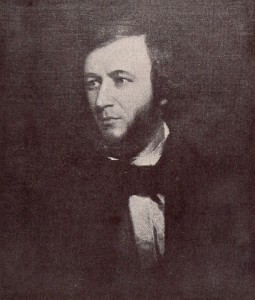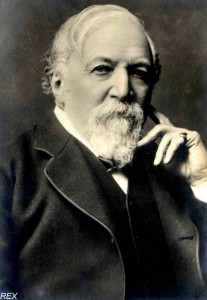Recently Mary and I talked about what it’s like to be in our late 60’s. Our bodies don’t work as well as they used to, and we’ve become acquainted with the medical world in new ways. When we were young it would have been logical to think ahead to the ages we are now and predict that this is the way it would be, but we avoided that long-distance look.
All of us have a tendency to think that the way things are today is how they’ll be tomorrow. Day-to-day it seems to be true, but decade-to-decade, age-related changes show themselves.
 Robert Browning wrote a poem with an oft-quoted opening that put a positive spin on growing old:
Robert Browning wrote a poem with an oft-quoted opening that put a positive spin on growing old:
“Grow old along with me! The best is yet to be.”
| As a young woman I thought this was a charming statement but also that it stretched the truth. How could old age be “the best?” Maybe Browning meant that if his loved one and he remained together through the geriatric years, life would be good, or at least as good as it could be with age-related troubles.Today, just for fun, I looked up Browning’s poem, and it turns out those first two lines are actually the “bottom line” idea of a 32 stanza piece, but it has very little to do with how good life is going to be in old age. He zeros in on some of the losses of advanced years, but also points out the foolishness of thinking youthful years are automatically the best ones, just because bodies are at their best.
Instead, Browning’s poem is all about the soul.
He beautifully points out that both young and old ought to put less emphasis on the physical and more on the spiritual, telling us to take “hold of God who gives…” He says that a “body at its best” can’t do anything to propel the soul into a satisfying eternity.
That second line in his poem (“the best is yet to be”) refers not to good experiences with a true love on earth but to companionship with God in life after death:
 Grow old along with me! Grow old along with me!
The best is yet to be,
The last of life, for which the first was made:
Our times are in His hand
Who saith “A whole I planned,
Youth shows but half; trust God: see all, nor be afraid!”
Browning is right. Spending too much time dwelling on physical losses only frustrates us. It’s better to focus on soul-gains, not just the glorious eternity awaiting us (whether we die old or young), but on the spiritual gains we can make by reading and thinking about Scripture, learning how to walk in God’s ways, and enduring struggles with patience and joy.
So the next time Mary and I talk about feeling old, we’ll try to remember, “A whole God planned; youth shows but half.” |
“Young men and young women, old men and children. Let them all praise the name of the Lord.” (Psalm 148:12-13)
 Robert Browning wrote a poem with an oft-quoted opening that put a positive spin on growing old:
Robert Browning wrote a poem with an oft-quoted opening that put a positive spin on growing old:
